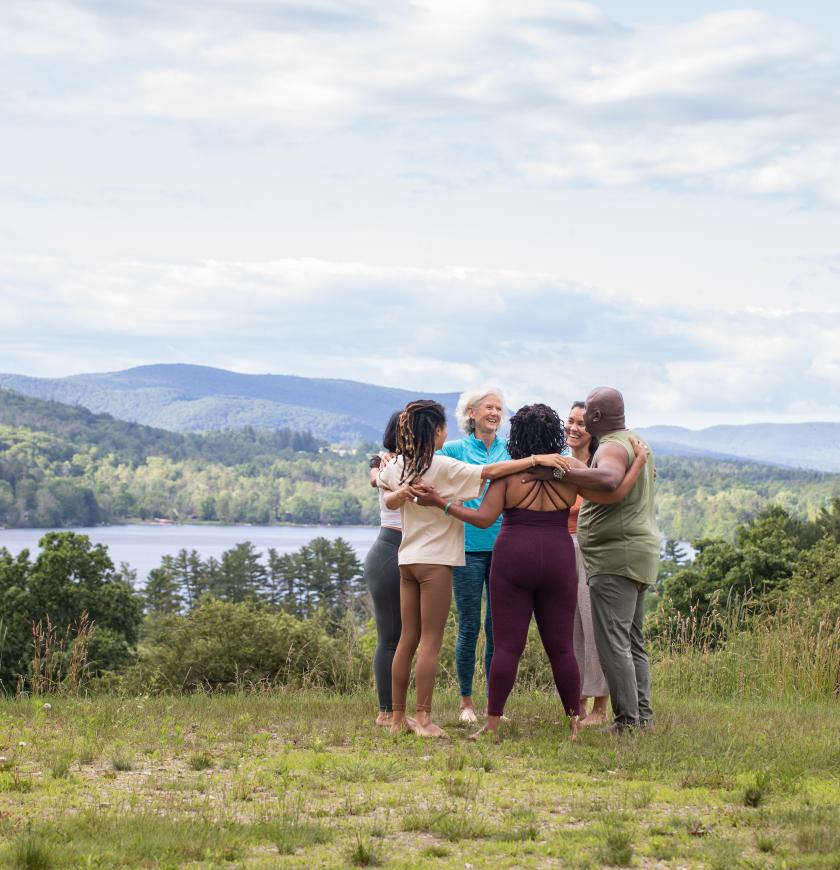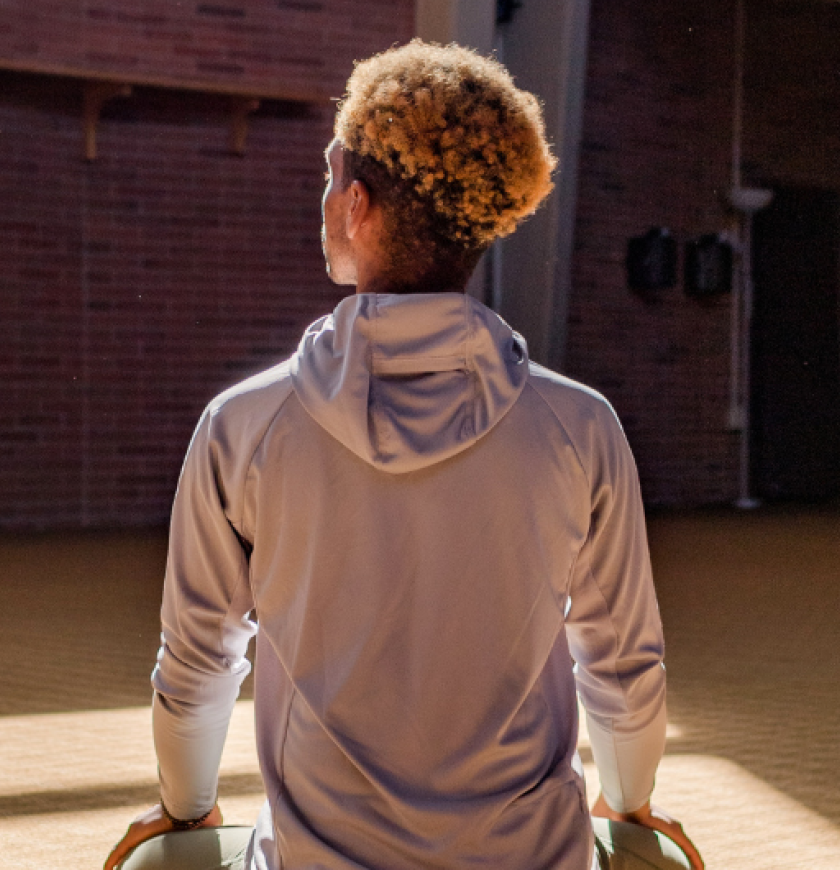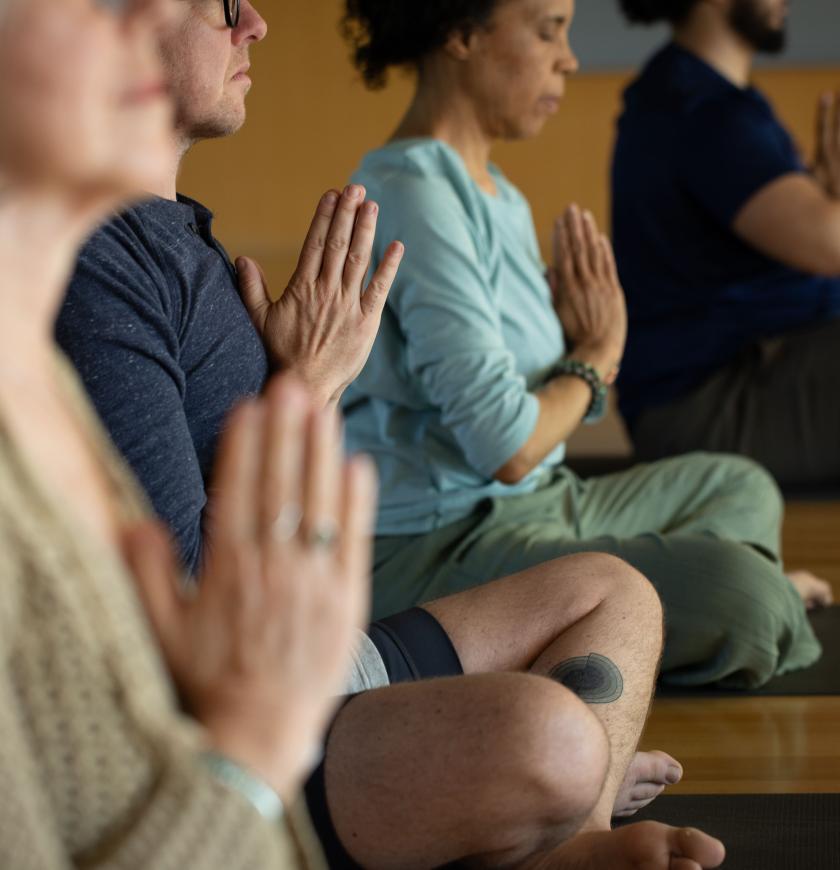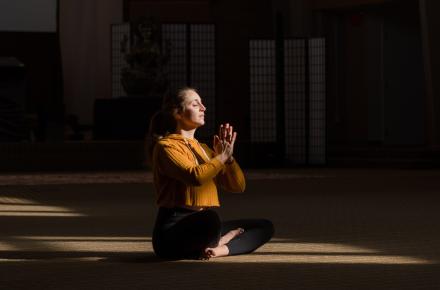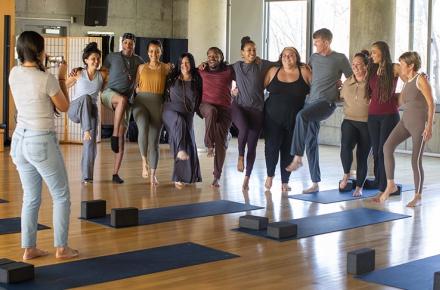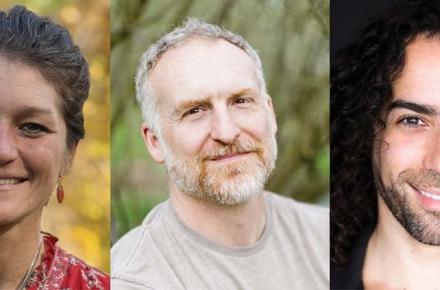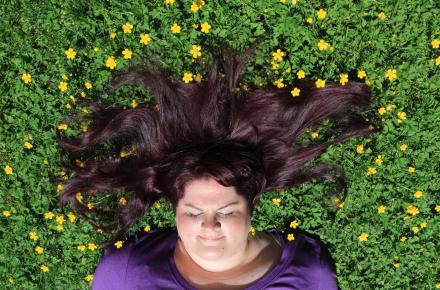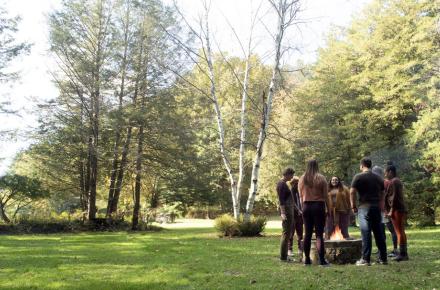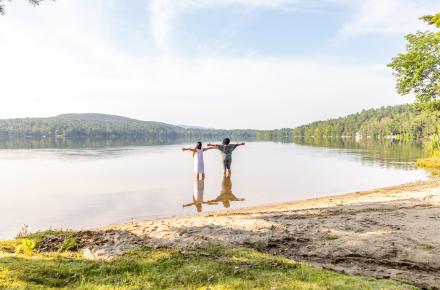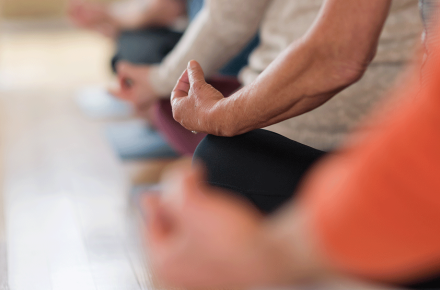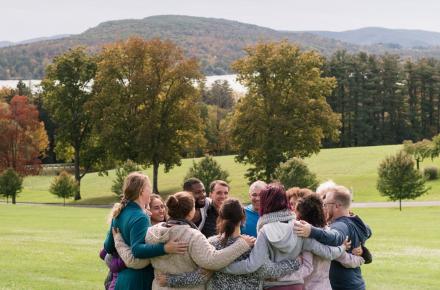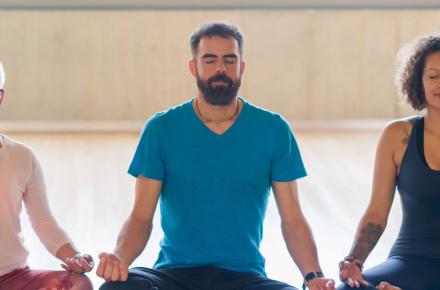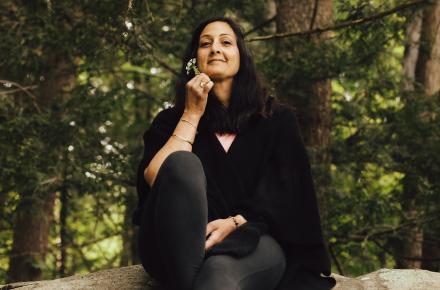The Dance of Imperfection
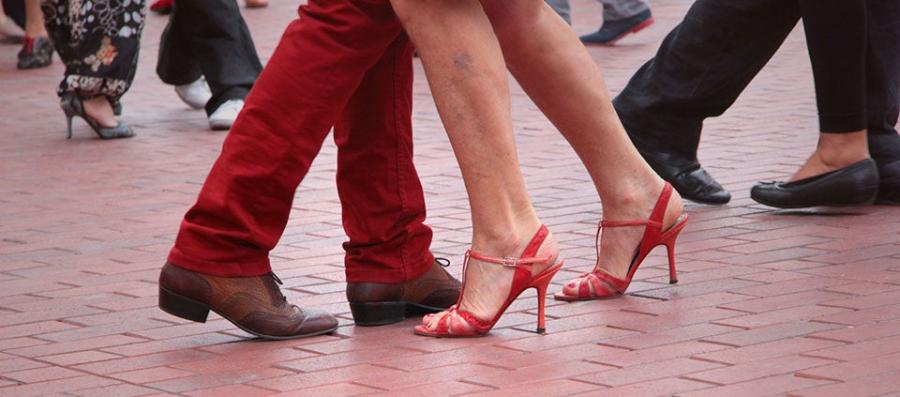
by Laura Didyk
During this past year, I have been adding new activities and friends to my life, experimenting with keeping one foot on this side of enjoyment and pleasure. One of the things I’ve added has me standing with both feet in a dance studio, a mambo beat playing loud over the speakers, and a whole cast of other folks around me who feel the same mysterious affinity that I do for Latin rhythms, music, and dance. It’s nothing any of us can explain, really. We just know we feel it, and we know those around us also feel it, and these layers of knowing are what make it so much more than just a dance class. The music does something to us, and we want all of what it has to offer. We want to get inside it and for it to get inside us and, as one of my new salsa friends says, for our bodies to be the instruments.
Inspiration for learning a new discipline often exceeds one’s novice ability to express what needs expressing, or, in this case, to move the way one wants to move. Fumbling around is part of the deal—you trip, embarrass yourself, and, if you are anything like me, laugh so hard you sometimes have to stop dancing in order to compose yourself. Partner dancing between people who are brand new to it is nothing short of a really entertaining physical comedy routine. My left arm, for example, has a mind of its own. If I leave it unattended, it does whatever it wants. Recently, after a turn, when it was supposed to stretch gracefully up and over my partner’s head, the back of my arm collided with his face. It was his good luck that I’m not working out right now and that’s a relatively soft area to get involved with.
Conversely, I have had the experience of my partner’s hand reaching out to stop me mid-turn for a shoulder check, missing my shoulder entirely and landing, instead, on an area a few inches south of there. It happens. You are learning, and often inelegant, and the chances of you falling from grace in any given dance are as high in number as there are eight-counts in a mambo song. Because of this, I maintain a fairly steady sense of compassion, for myself and my classmates. Essentially, we are all there saying to our teacher, “We don’t know what we’re doing, we’re kind of dumb in the dance department, and you’re really great at this. Can you help us? Please?”
One morning, a few weeks ago, I called a friend of mine complaining about how horrible the night before had been—for the first time, I’d taken my nine months of cultivated salsa-dancing skills out into the real world, onto a real dance floor. There were people who I’d never danced with, who knew many, many more moves than I did, even folks who danced on a different timing. When you are bumbling around in the studio with others who are also bumbling, it’s easy to buy into the illusion that you are becoming the best salsa dancer west of California. Then you go out dancing, in public.
“It was so embarrassing,” I said to my friend. And it really was. I hadn’t been in the club for two minutes when a short, handsome man donning a smile and a spiffy suit approached and put his hand out to take mine. I handed my purse to my friend, and let him lead me out onto the dance floor for a merengue. Merengue is one of the easiest Latin dances a person could possibly do: one-two-one-two, left-right-left-right. There’s not much to it, and any other time I could do it with a stack of plates balanced on my head, but I was nervous, and “one” was as far as I could get. I couldn’t find the rhythm, the side-to-side motion of falling a little into each hip.
On the phone, my friend listened patiently to my story, and then said, “Oh, I think it’s good for you. It’s good to be bad at something for awhile.” “But I wanted to cry,” I said, then adding, for the second time in the conversation, “It was so embarrassing.” She went on to point out that despite how humbling it was, I didn’t die. I was just “not so great” at something. I’ve never been a big fan of “not-so-great.” I like to be exceptionally great. And I like to be exceptionally great right away.
At the club that night, my instructor’s voice was not yelling over the music about what move was coming next, nor did my partners offer any clues before contorting my arms into a granny knot over my head while turning me. When dancing with someone much better than me, which happened to be most people that night, it’s easy to imagine that I am raining hard on their beautiful dance parade—the feeling is a combined one of apology and humiliation. My partner is trying to strut his expert stuff and drag a just-born fawn around the dance floor at the same time—wobbly legs, unsure footing, a look of scared concentration on her face. All of this while other people watch. If only fighting with gravity, centrifugal force, and someone else’s body weight garnered me as cute and irresistible as a baby animal…. I stumbled my way through each dance, waiting for the song to end so I could take respite on a bar stool. In hindsight, the fact that I was near tears and wanted to flee the nightclub because I was less than excellent at something is revealing in a way that I now almost enjoy.
When you give all your attention to an activity, you can learn a lot about yourself—the ways in which you are growing, the ways in which you are not. You might be learning to dance, how to break forward on the count of “2” and back on the count of “6,” and how to do an inside turn, but you are also learning how you relate to others, how kind or unkind you are, how forgiving, how comfortable with imperfection—in yourself and in others.
The statements of feedback from my instructors and dance partners—both in the studio and in the club that night—have started to take root in my psyche, and reveal themselves as the metaphysical insights that they are. They speak to how I move through my life, where I struggle, how I’m stuck: “It looks like you are thinking too much,” “don’t forget to breathe, ” “easy, easy, no need to rush,” “you have too much resistance in your arms,” and “you are strong, that’s good, but you need to relax so you can feel the lead, so you know what to do next.” It’s laughable how impossible it is to hide the truth.
Pride is a terrible, terrible quality to have too much of. And when coupled with fear, it prevents us from doing things our spirit wants us to do. In my younger years as a gymnast, I prided myself on having the highest and most impressive scissor leap on the team—a jump that included one full split led with the right leg and followed by a second full split with the left, two leaps in one jump on a four-inch wide beam four feet off the floor. To get both leaps in, you must jump high. During one practice, I was keenly aware of all the mothers in the balcony watching me, and felt filled, as I often did, with my desire to impress. I executed my leap but was paying more attention to what the mothers upstairs were thinking than on the trick I was doing—I landed with only half my foot on the beam. The fall was scary and not entirely painless. My coach, smart man that he was, immediately ordered me back on the beam. I refused, making it the only time I ever disobeyed him. I was crying and shaking, and there was no way I was getting back up there. It took more than three months before I got up the nerve to try that trick again, and when I finally did do it, it was never as high or as beautiful.
So, despite the embarrassment I felt that first night out at the club strutting my not-so-elegant stuff, and despite my whining to my friend on the phone the morning after, I took a piece of advice I so often administer to others: never give up. I forced myself out again the following weekend to another Latin night at another club, and several days after that to a practice session at the studio. In the span of a week, my confidence rose, I started to “get” turns and steps I wasn’t getting before—I got more comfortable, if just a little, with messing up. I mined the feedback that was, for better or worse, so freely given, and started to slow down, relax, and pay attention.
Alas, I am still no expert, and I am told that I need to relax even more. But I am still experiencing the unmistakeable beginnings of joy that come from stepping into a difficult thing, and dancing your way out the other side. “Joy comes after,” a salsa friend wrote in an e-mail conversation we had about the trials and tribulations of learning to dance. “Joy comes because it is difficult.” I couldn’t agree more.
Laura Didyk, MFA, is an essayist, poet, and a former athlete with a lifelong passion for nutritional health and optimal living. She has had her work published in literary magazines throughout the country, and has been awarded fellowships at Yaddo, the MacDowell Colony, and the Virginia Center for Creative Arts.
© Kripalu Center for Yoga & Health. All rights reserved. To request permission to reprint, please e-mail editor@kripalu.org.
